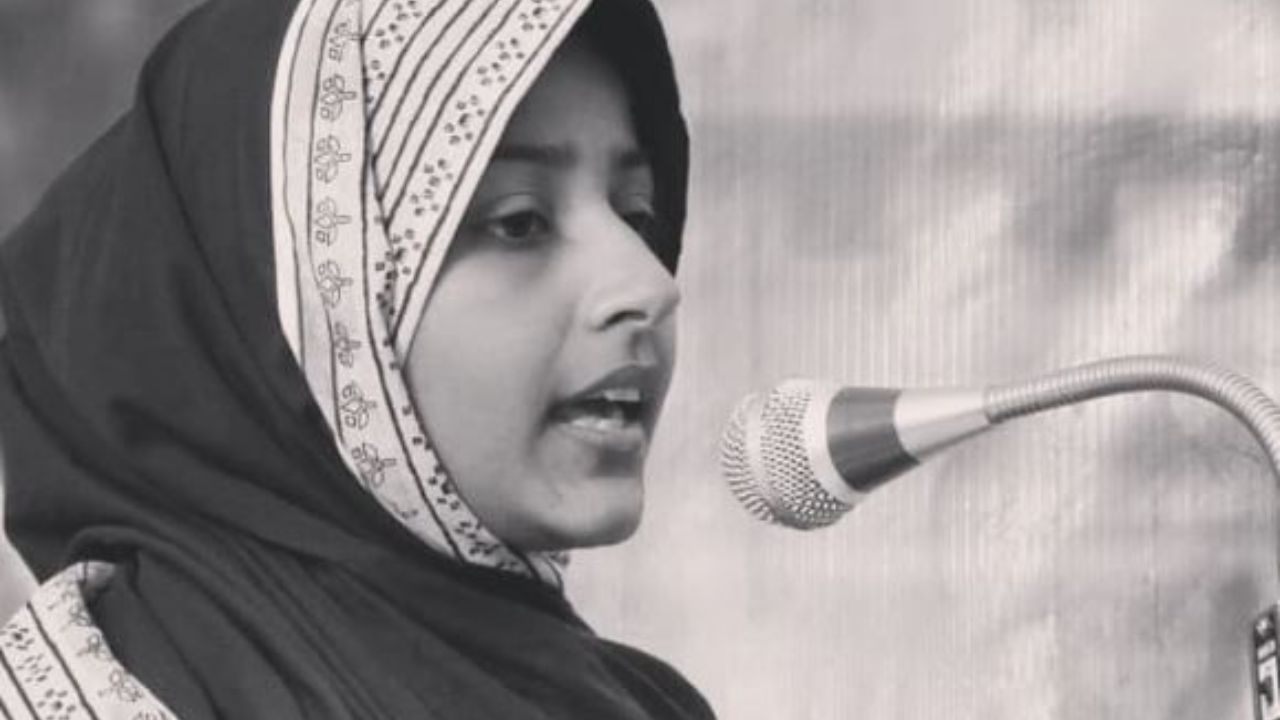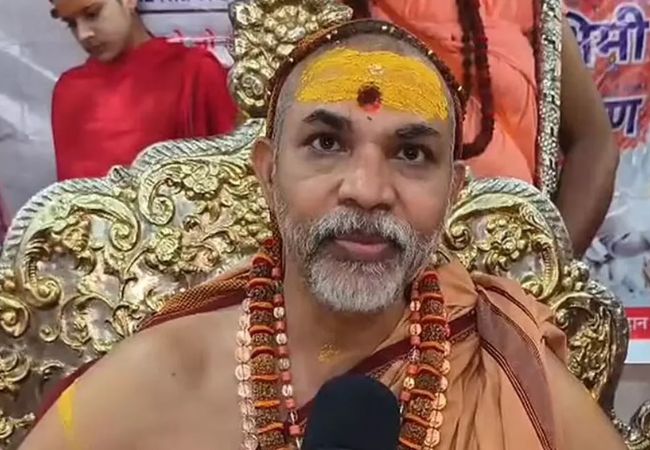Prayagraj (UP): In a tale of resilience and resistance, student activist Afreen Fatima recounts the tumultuous past year that has seen her family at the epicenter of a devastating series of events. Afreen's life, once marked by her activism and aspirations, has been eclipsed by countless court visits, battling to prove her home's legality and defending her father, Javed Mohammad, against severe allegations. A renowned activist in Prayagraj, Javed Mohammad's arrest and subsequent incarceration became a turning point for their family, leading to their home's demolition and a barrage of challenges that have tested their mettle.
On June 10, 2022, hours after Friday's violence erupted in Prayagraj, Javed Mohammad was taken into police custody. Accused of being the 'mastermind' and 'key conspirator' in the post-Friday prayer violence, he faced charges, including those under the National Security Act (NSA). The subsequent events were swift and severe. On June 11, Javed was officially arrested, and on June 12, the family's home was demolished, a public spectacle broadcasted across national television channels.
The destruction of their home was not merely an administrative action but a harsh statement, emblematic of what many termed 'bulldozer justice' or 'bulldozer vendetta.' Afreen's activism, especially during protests against the Citizenship Amendment Act (CAA), had garnered attention. Consequently, her father's incarceration raised questions about a potential connection to her activism.
Reflecting on the past year in a The Quint’s interview, Afreen expressed her deep anguish, acknowledging the loss of her home and the absence of her father. "He has been the strongest pillar of the family, especially for me," she said, emphasizing his unwavering support and the void his absence had created. Despite the adversity, Afreen and her family stood united, demonstrating a profound resilience in the face of immense challenges.
Javed Mohammad's incarceration, according to Afreen, was not solely due to his activism but also his vocal stance against rising Islamophobia. The authorities' accusations and subsequent actions were perceived as collective punishment. The pattern, as Afreen observed, was distressingly common. Families, she noted, were consistently dragged into the activism of their relatives, leading to widespread criminalization and vilification, a reality she and her family have endured.
In light of the current atmosphere in India, Afreen felt a pervasive sense of insecurity. "Any person, it does not have to be someone who is politically or socially active...at any point, the police can barge into your home and arrest you for no crime at all," she said. Afreen acknowledged this fear wasn't exclusive to her; it was a pervasive concern shared by many.
The demolition of their home was not just an isolated incident; it was a potent symbol, Afreen argued. It served as a message to the Muslim community, indicating that dissent would not be tolerated. Moreover, it was a broader message to the Hindu majority, shaping a chilling vision of a nation where Muslims' homes, livelihoods, and families were demolished, underscoring the stark divide within the society.
Despite the challenges, Afreen maintained her resolve. While she has reduced her social media presence, it isn't out of fear but due to the overwhelming demands of court proceedings. Fighting for justice, she asserted, was a herculean task, with the process itself often feeling like a form of punishment.
Throughout this ordeal, Afreen's family, like many others, has become a symbol of resistance against injustice. Afreen's fight for her father's freedom and their family's rights underscores the ongoing struggle for justice in India's complex sociopolitical landscape.
Let the Truth be known. If you read VB and like VB, please be a VB Supporter and Help us deliver the Truth to one and all.
Lucknow (PTI): The Uttar Pradesh Congress on Wednesday staged a statewide protest demanding a fair and transparent inquiry into the FIR lodged against Swami Avimukteshwaranand Saraswati and those who filed the complaint against him.
In a statement issued here, the party said memorandums addressed to Prime Minister Narendra Modi were submitted through district magistrates in all districts of the state.
Uttar Pradesh Congress spokesperson Manish Hindvi told PTI that the memorandums were handed over through the district administration in all 75 districts.
In the memorandum, the party alleged that Saraswati and his disciples were "unnecessarily harassed and humiliated" by police on the occasion of Amavasya and were prevented from taking a ritual bath (at the Magh Mela). It further alleged that some disciples were manhandled and taken to a police station.
The memorandum also claimed that an FIR was later registered against Saraswati, his disciple Swami Mukundanand Brahmachari and several unidentified persons in a sexual harassment case. It termed the case a "conspiracy" aimed at tarnishing the seer's reputation.
Citing Articles 25 and 26 of the Constitution, the memorandum stated that these provisions guarantee religious freedom and the right of religious denominations to manage their own affairs.
It described the position of shankaracharya held by Saraswati as "one of the highest spiritual posts in Sanatan tradition" and alleged that the entire episode appeared to have been "orchestrated in a planned manner".
"We request that the background of the persons who got the FIR registered be investigated in a transparent manner by a retired high court judge and strict action be taken against them," the memorandum said.
It also sought a "fair and transparent probe" into the allegations levelled against Saraswati so that the truth could be established.
Earlier, Uttar Pradesh Congress president Ajay Rai had told reporters in Varanasi after meeting Saraswati that the party stood firmly with him.
The Congress said it would continue to press for an impartial inquiry into the entire episode.
On February 21, an FIR was lodged in Prayagraj against Saraswati and his disciple Mukundanand Brahmachari on charges of sexually abusing two persons, including a minor, over the past year at a gurukul and religious congregations, including the recently concluded Magh Mela.
Days after he was booked, Saraswati had said on Monday that he would not oppose his arrest and asserted that the "fabricated story" would be exposed sooner or later.
At a press conference on Wednesday, Saraswati alleged that criminals rule in Uttar Pradesh, level allegations and influence investigations, as he denied having any contact with the two persons for whose alleged sexual abuse he has been booked.



_vb_77.jpeg)
_vb_00.jpeg)
